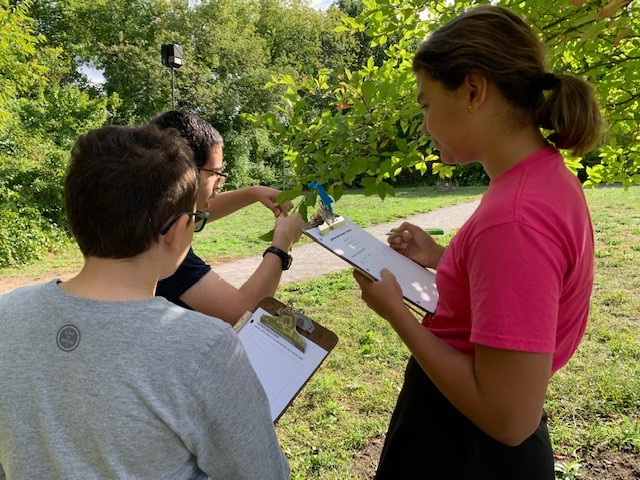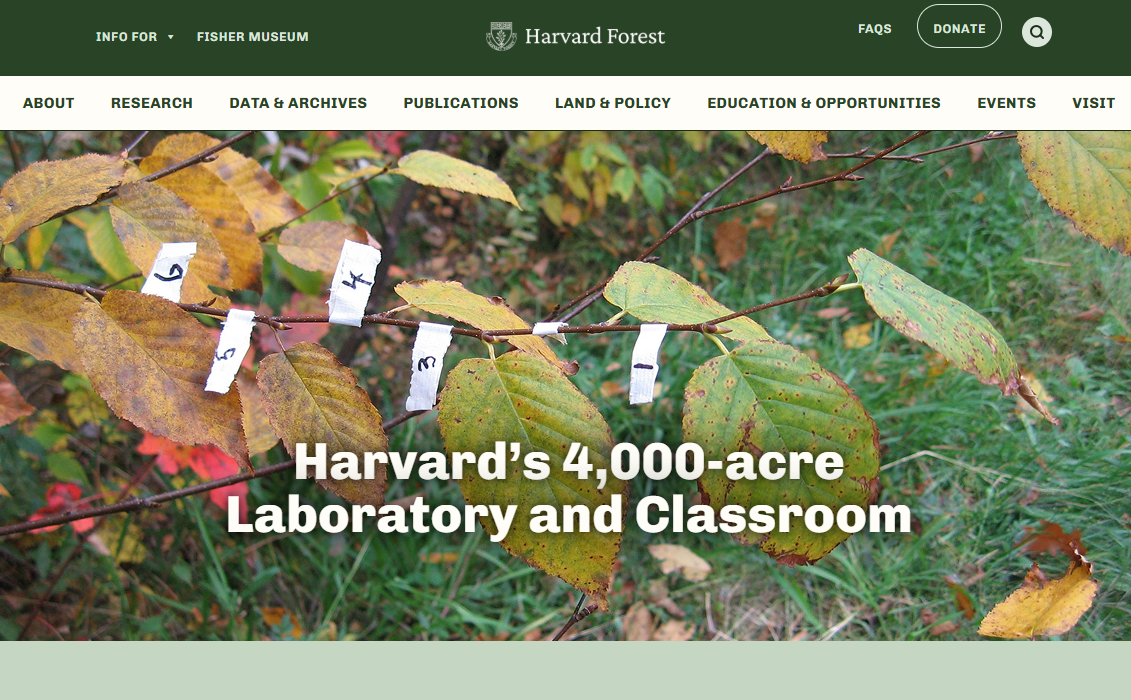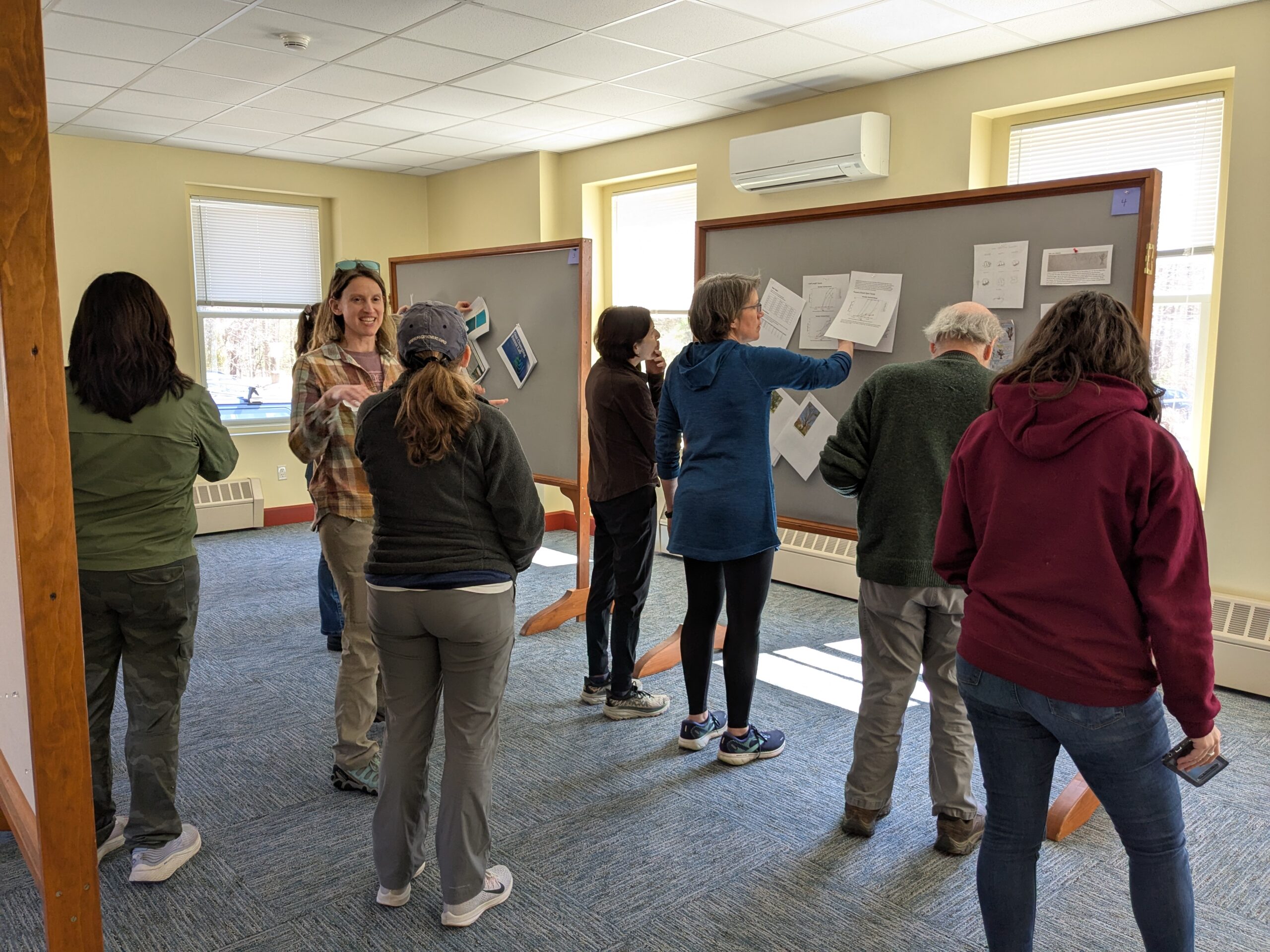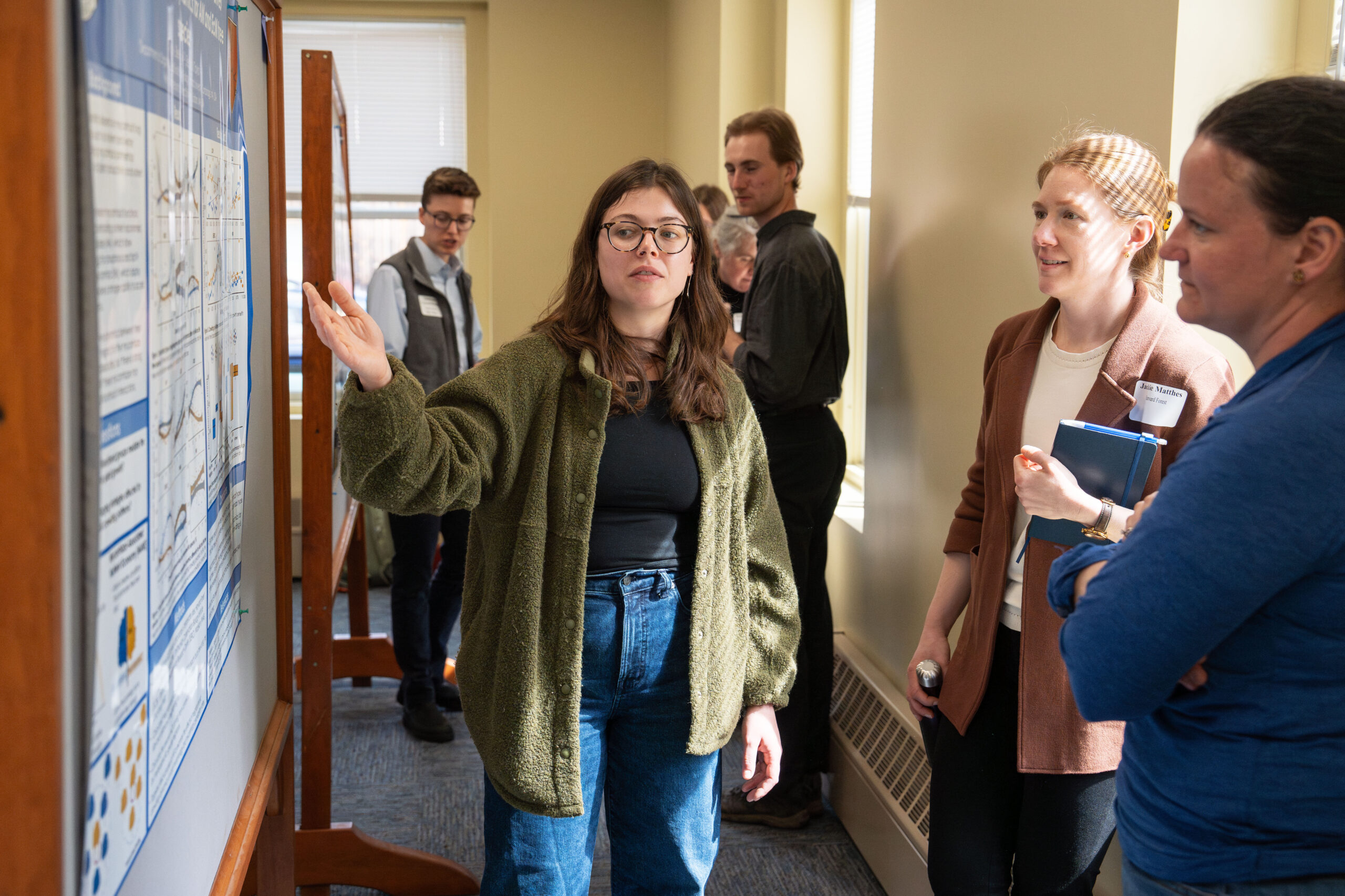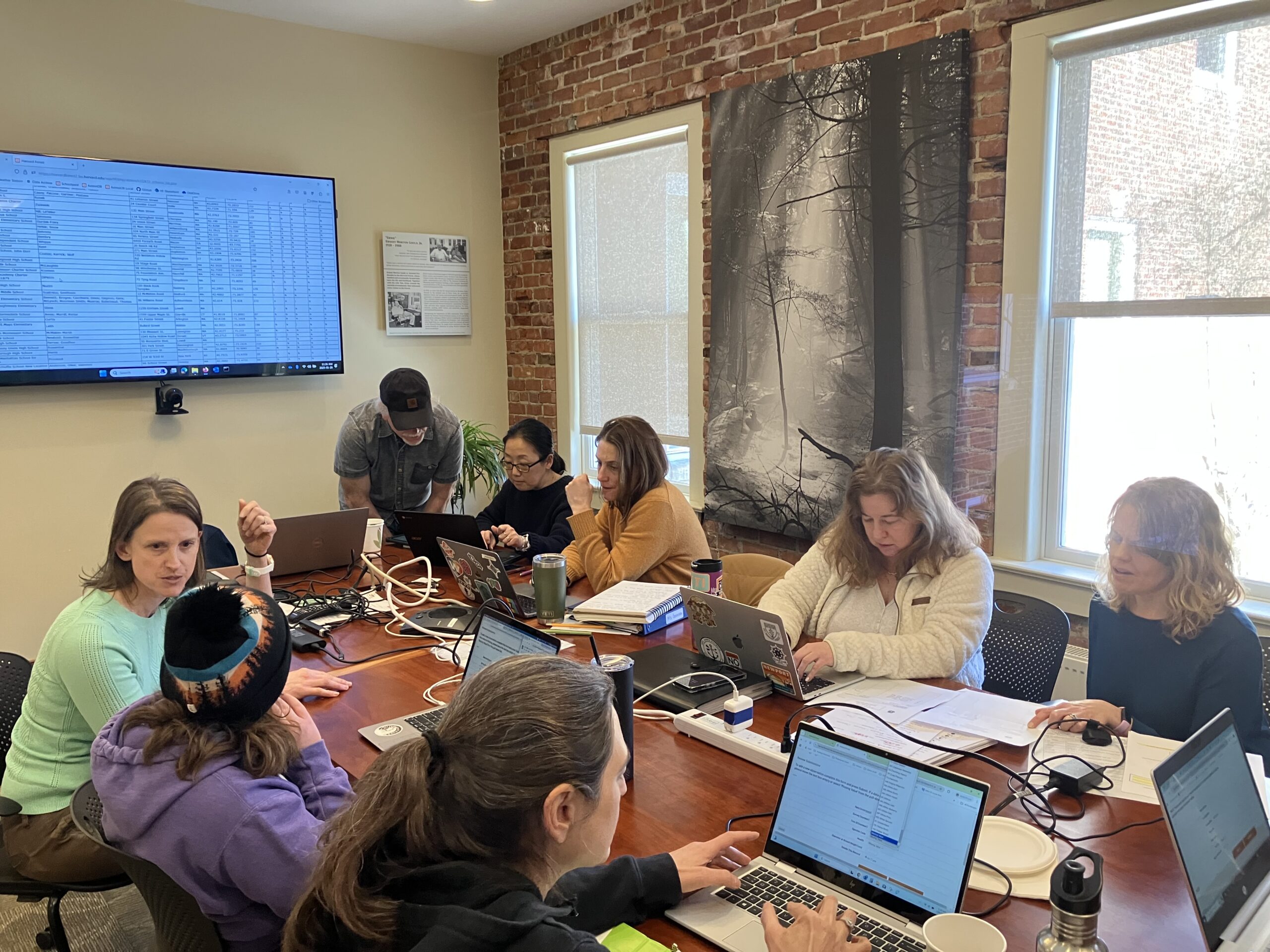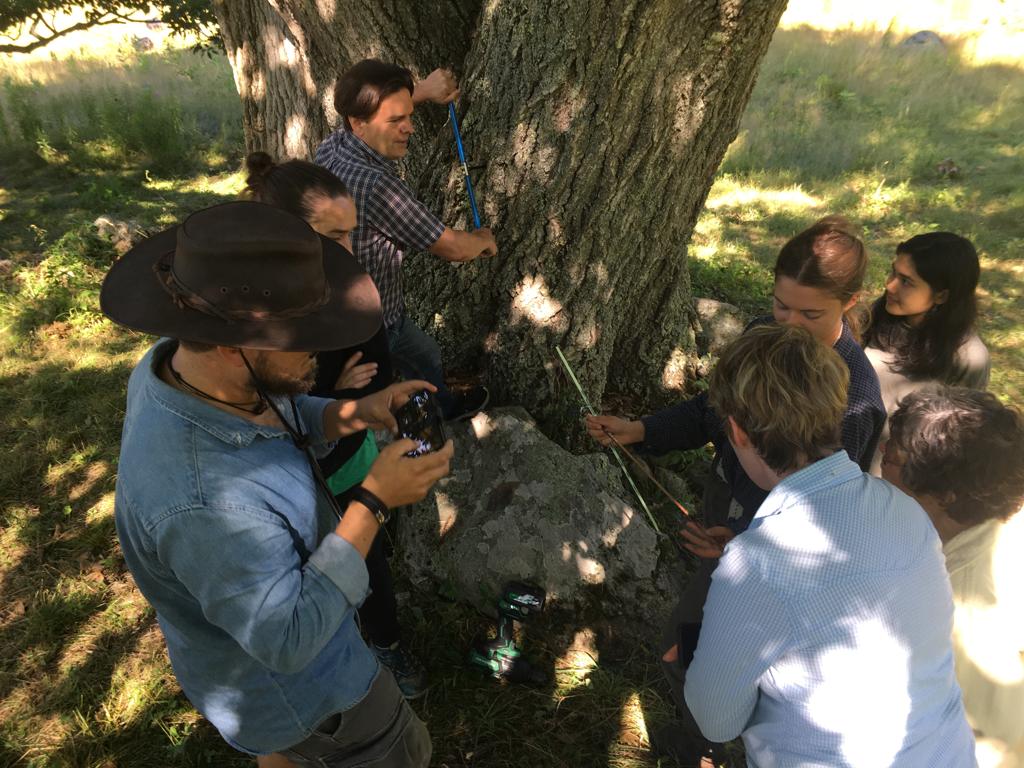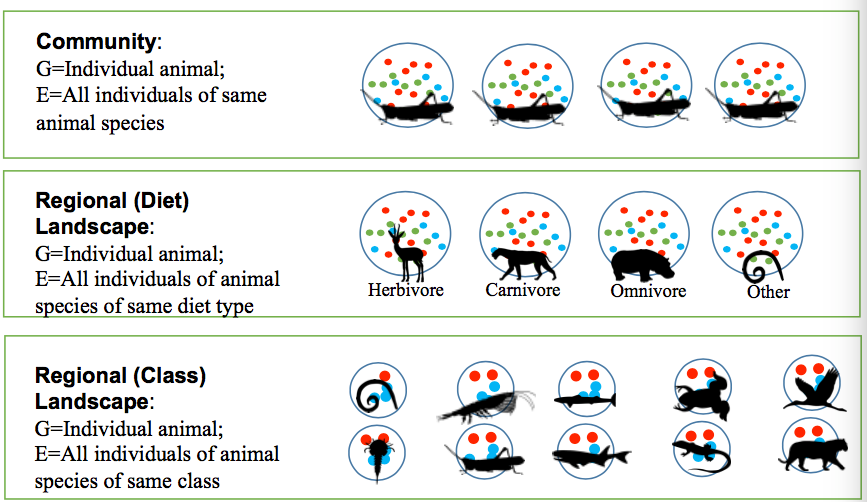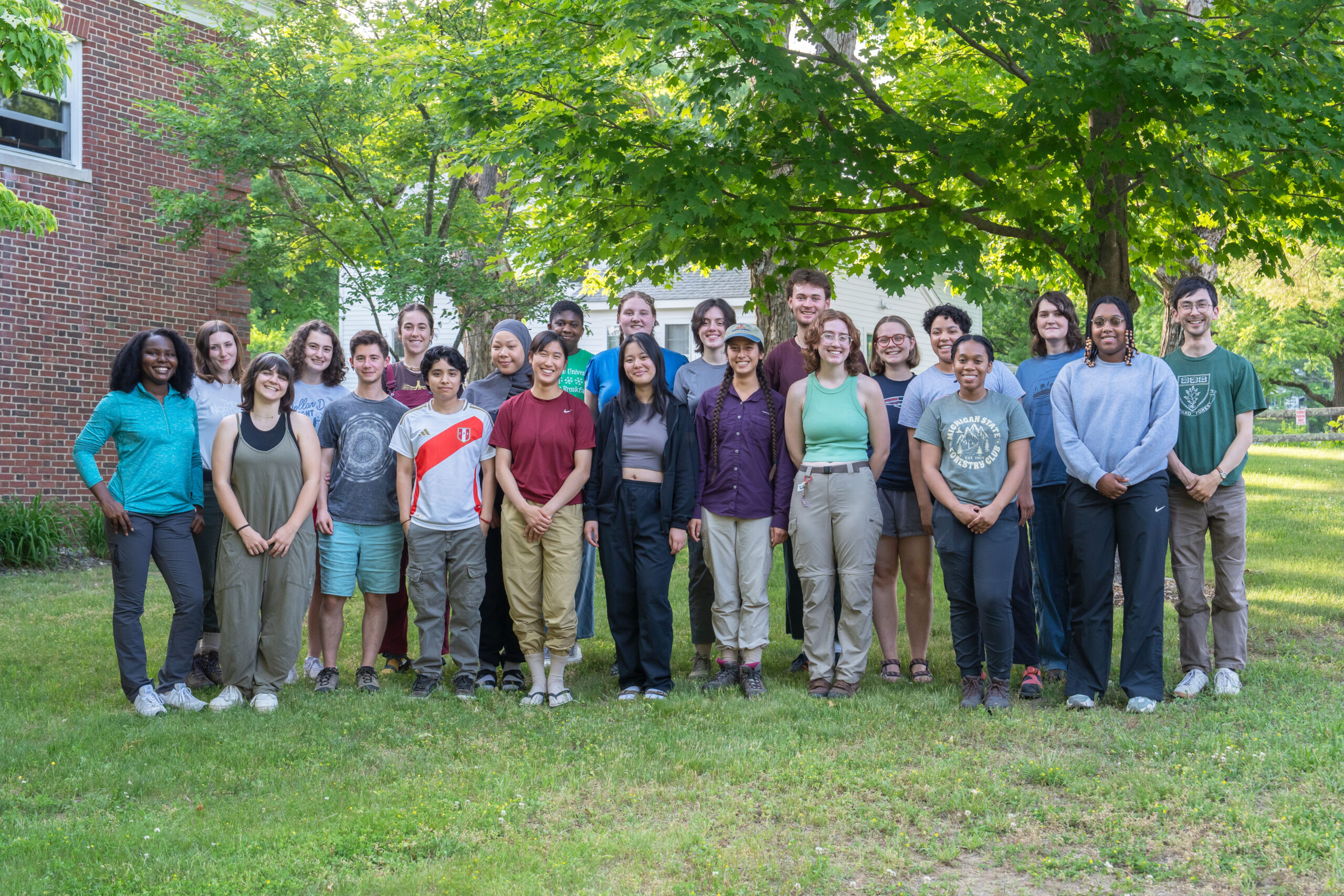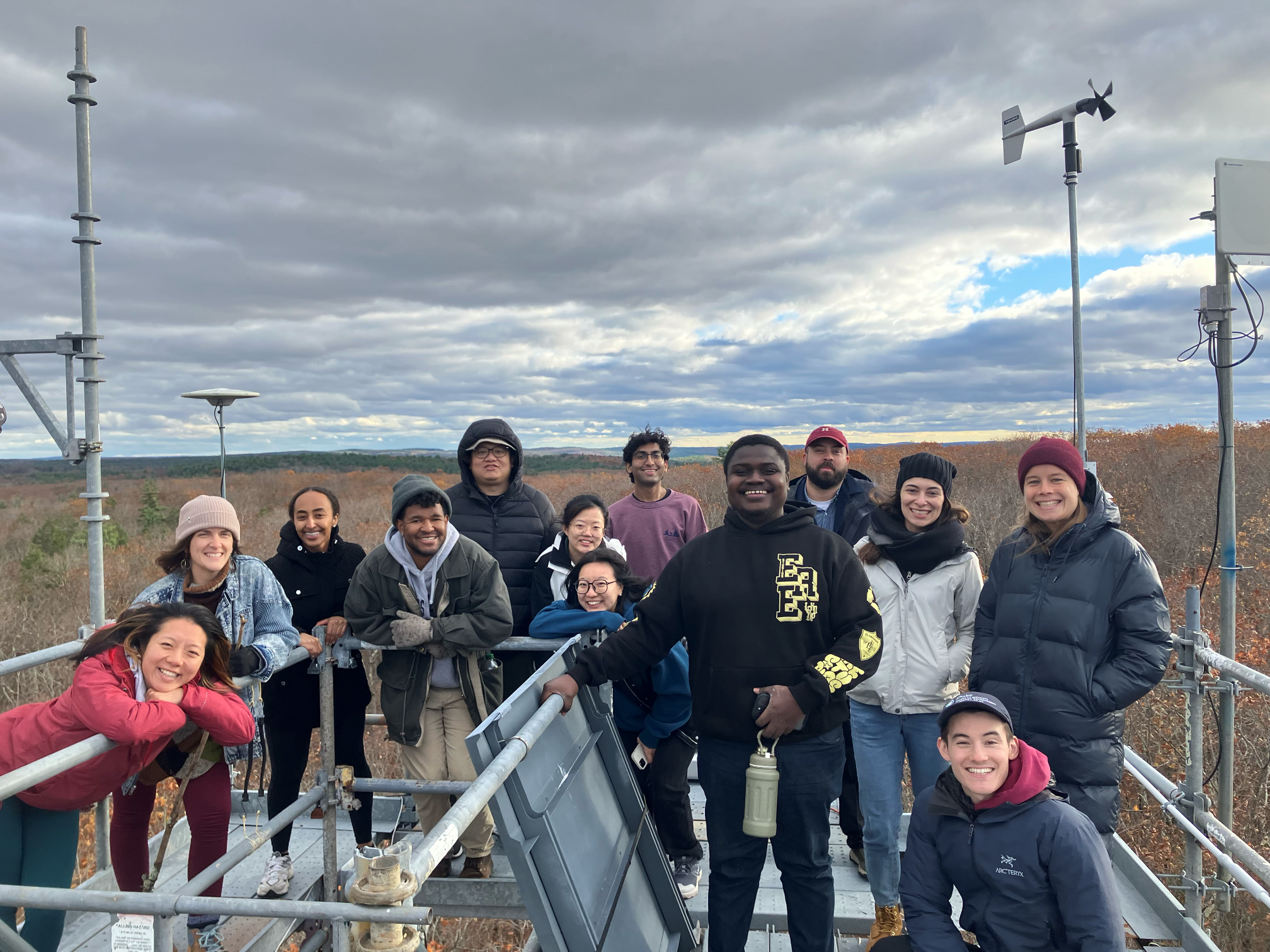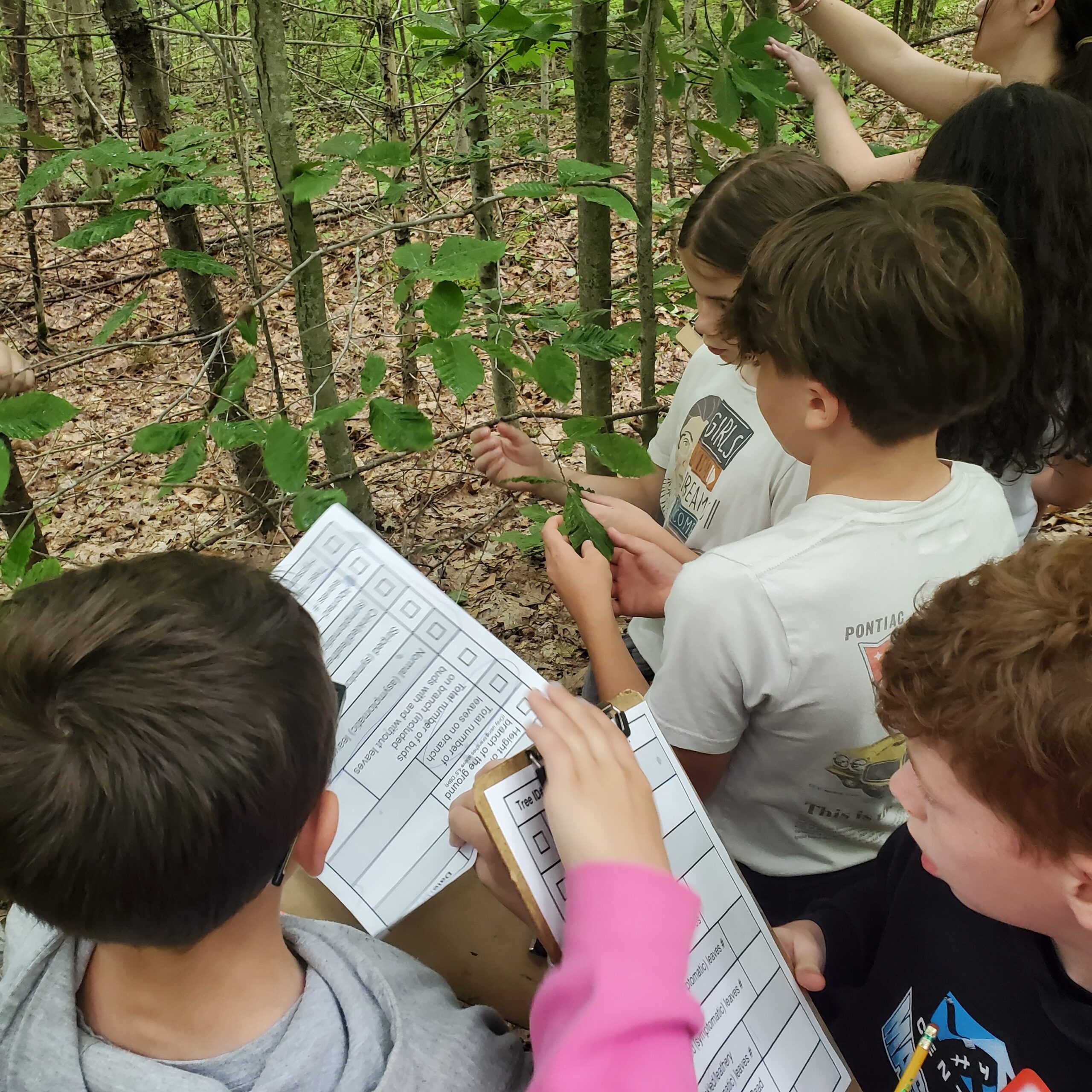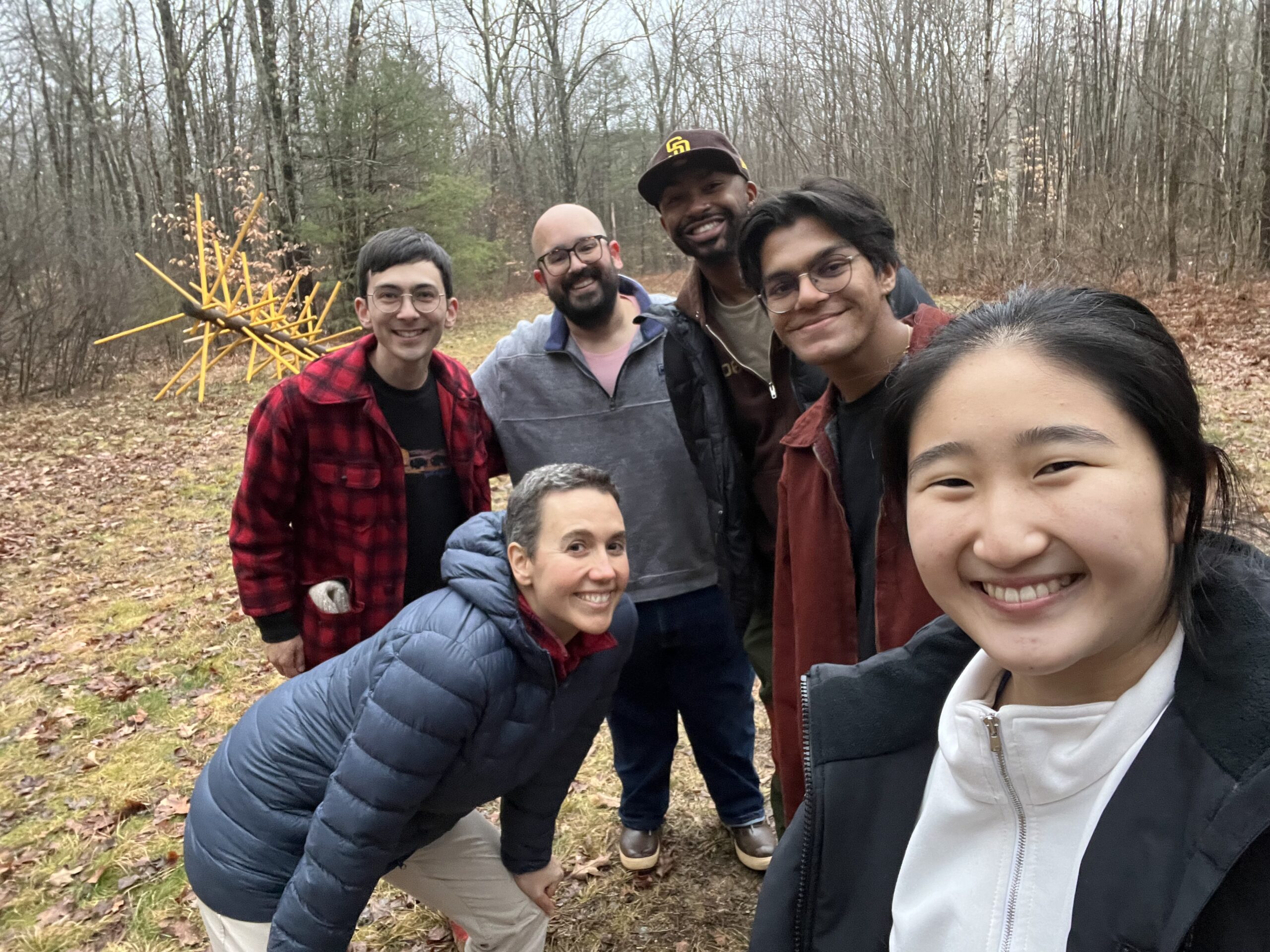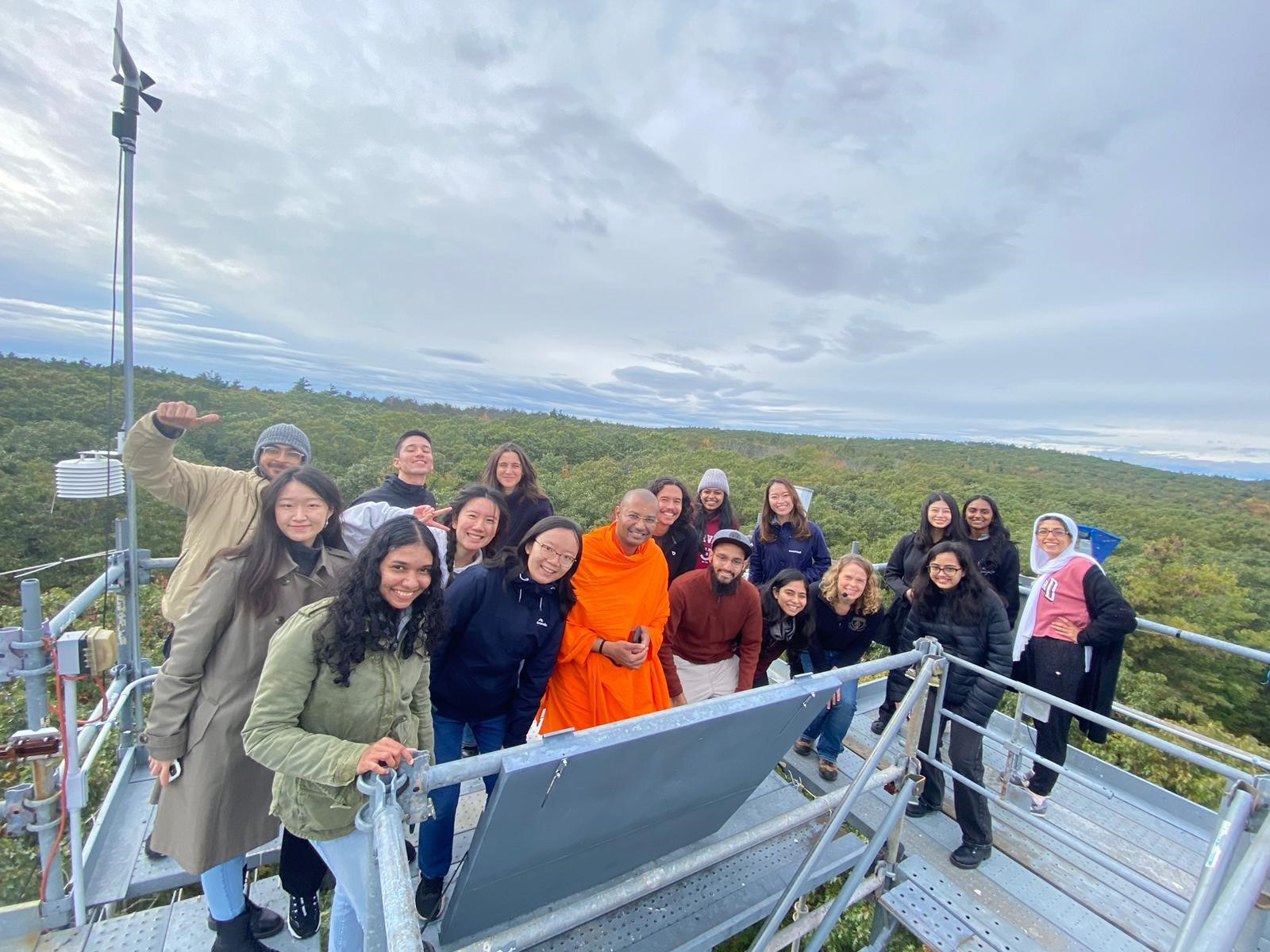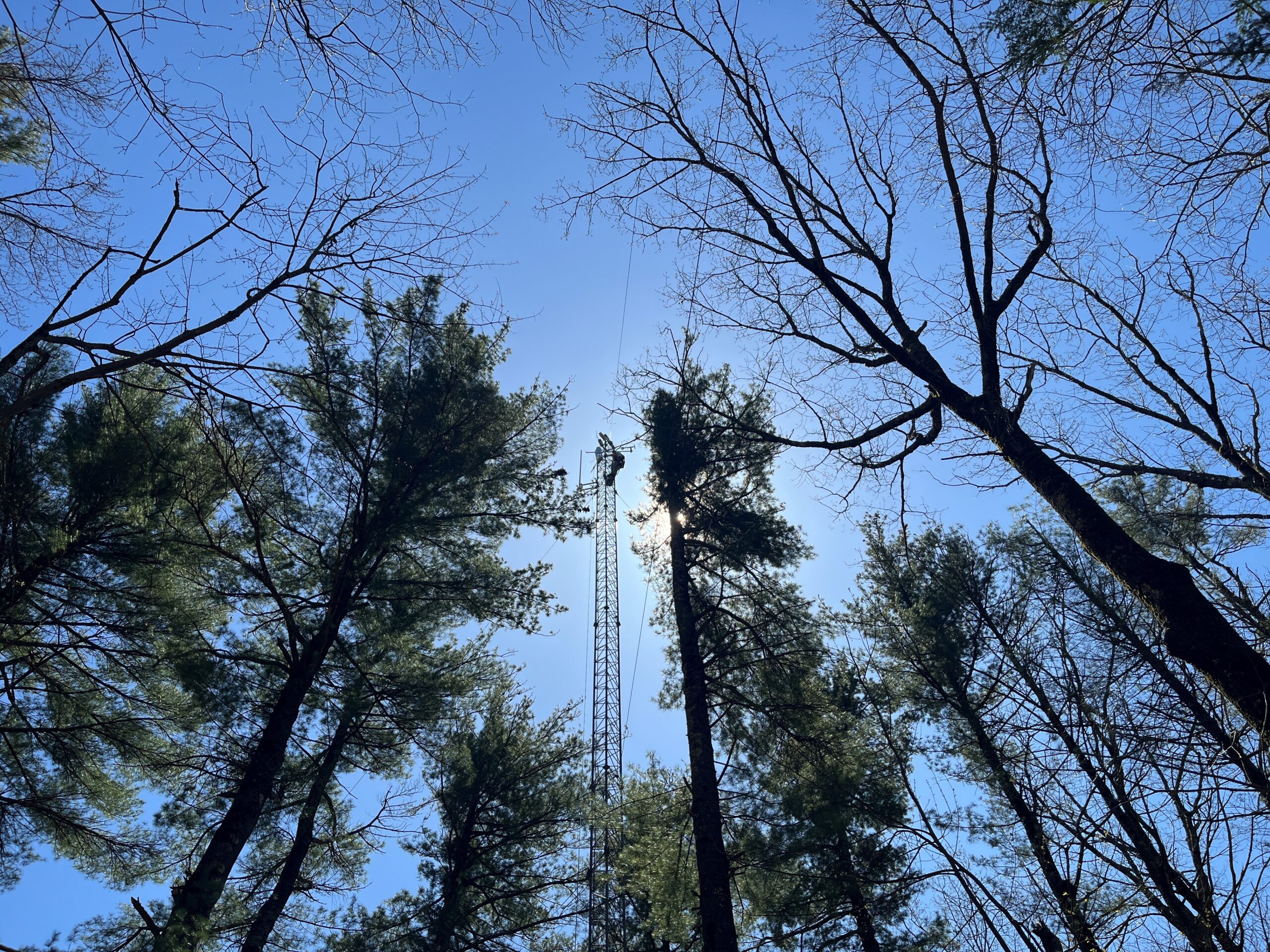
The Harvard Forest Field Wireless Network (HFFW) provides Internet access to selected field sites across 1500 wooded acres of the Prospect Hill Tract, enabling scientists to monitor and control their equipment remotely and to collect and process data in real time. Operational since 2010, it is an extension of the university network and is jointly managed by Harvard Forest and Harvard University Network Operations.
Sites and Infrastructure
Research sites currently on the HFFW include three eddy flux towers, four global climate change experiments, two soil respiration sites, ten phenology cameras, four stream gages, two wetland gages, and the HF weather station. Examples of real-time data collected via the HFFW can be found by visiting Explore Real-Time Data.
How the Network Works
The HFFW uses 5 GHz radios for line-of-sight connections between research towers and 900 MHz radios for ground-based sites; the 5 GHz radios offer higher bandwidth, while the 900 MHz radios better penetrate the forest canopy. A high-capacity backbone connects the three main towers (barn, hemlock, hardwood) to the HF campus network.
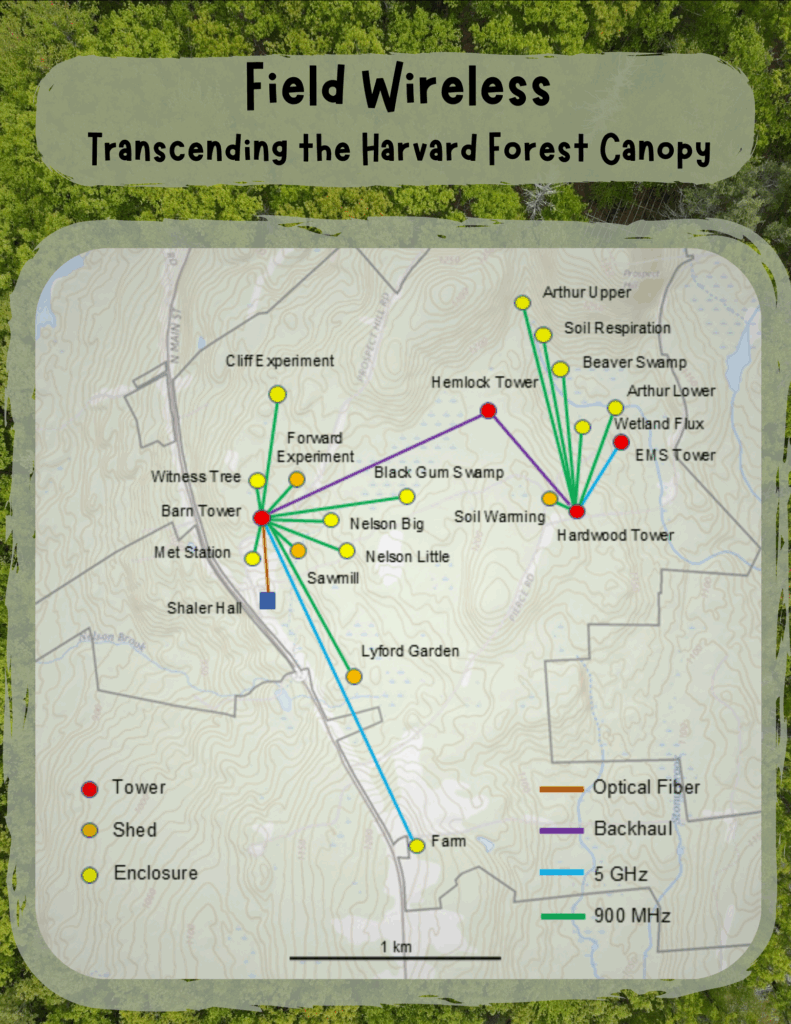
Recent Improvements and Impact
With support from the National Science Foundation, recent improvements were completed by Dr. Emery Boose and Mark VanScoy and include new radios, Wi-Fi access points, and upgraded switches. Adjustments to which towers are used for the network backbone allow more streamlined maintenance, inactive sites were retired, and four new ones added.
These significant upgrades bring nearly 10x faster connections and Wi-Fi at all research sites—including the top of the hardwood tower. For research, higher bandwidth means better support for data-intensive projects. For education and outreach, the combination of higher bandwidth and Wi-Fi availability means that Zoom sessions on laptops, tablets, and mobile phones are now possible at all sites, expanding opportunities for online field trips and remote learning. And for network management, the new radios are significantly easier to manage and troubleshoot remotely than the old radios.
For more information on the HFFW and for assistance with connecting field equipment and setting up remote access over the Internet, please contact Emery Boose.
